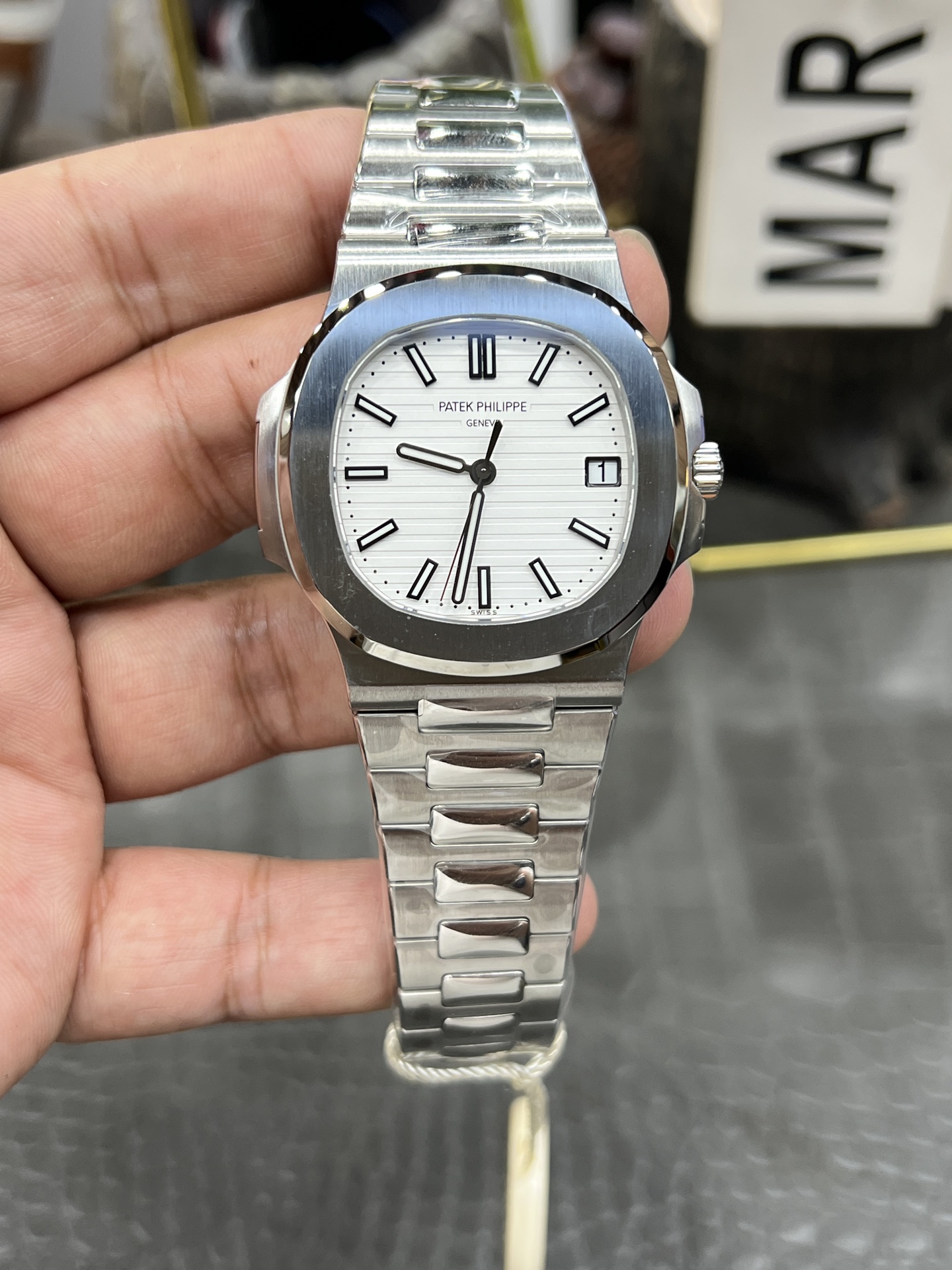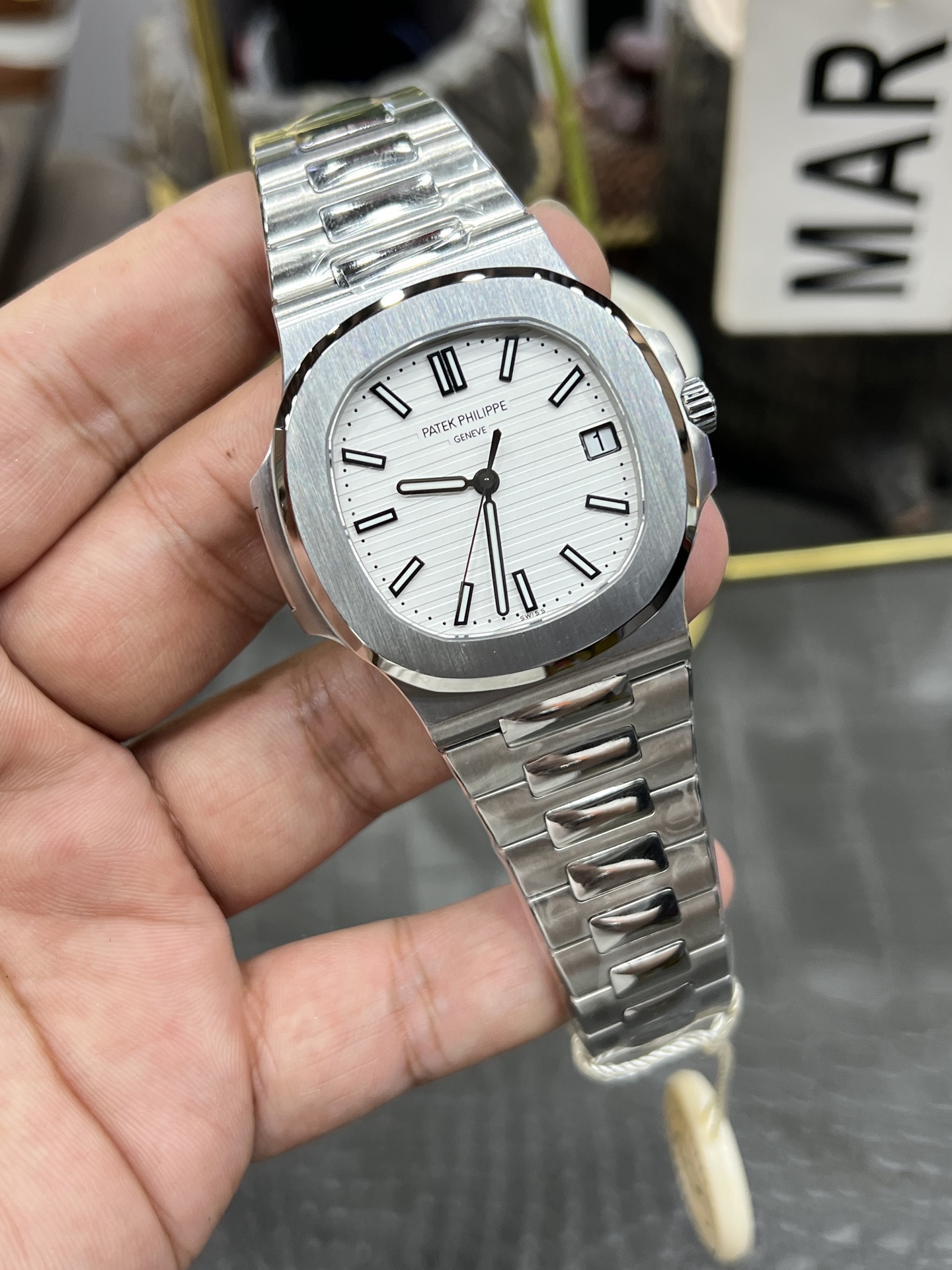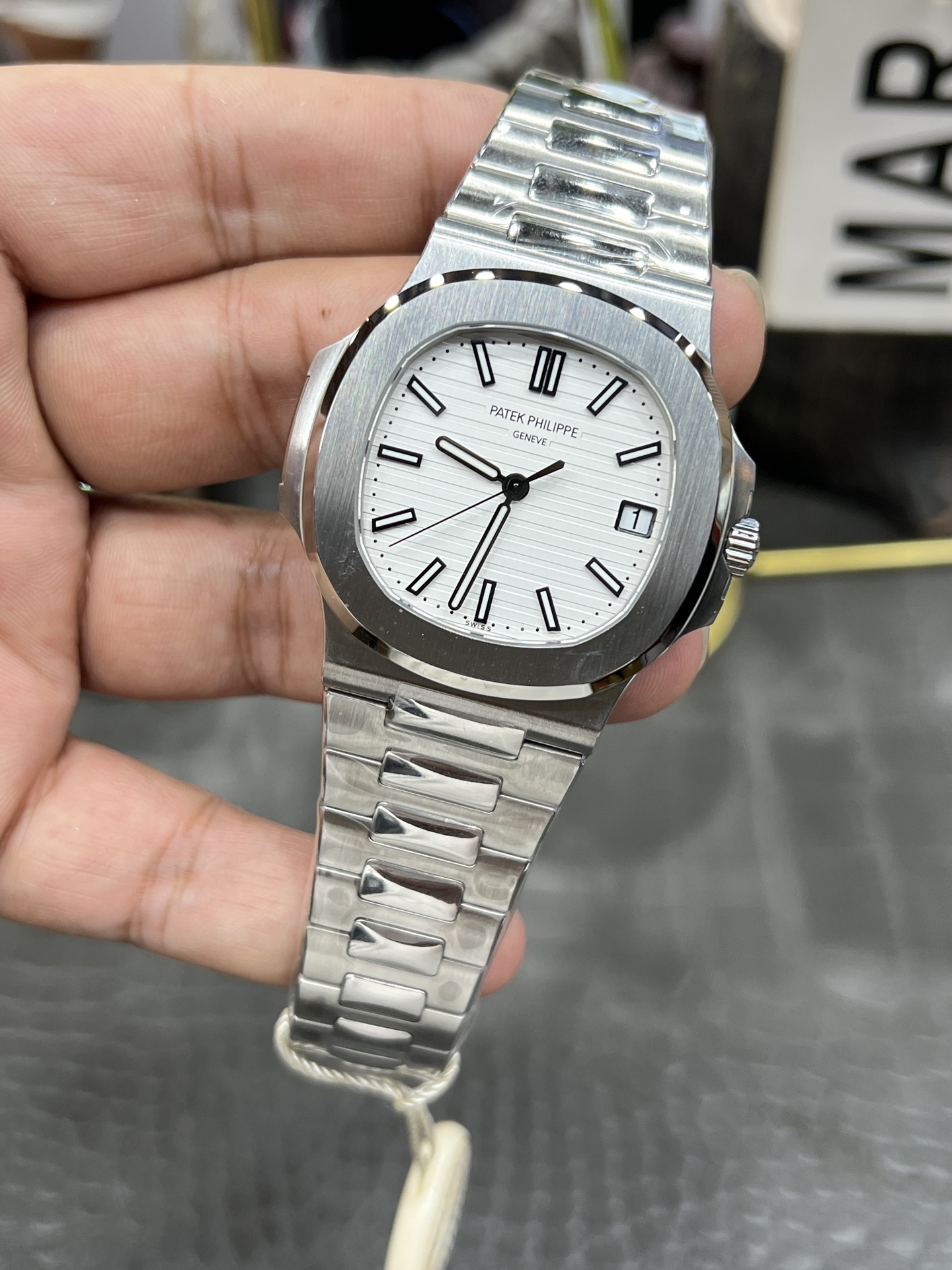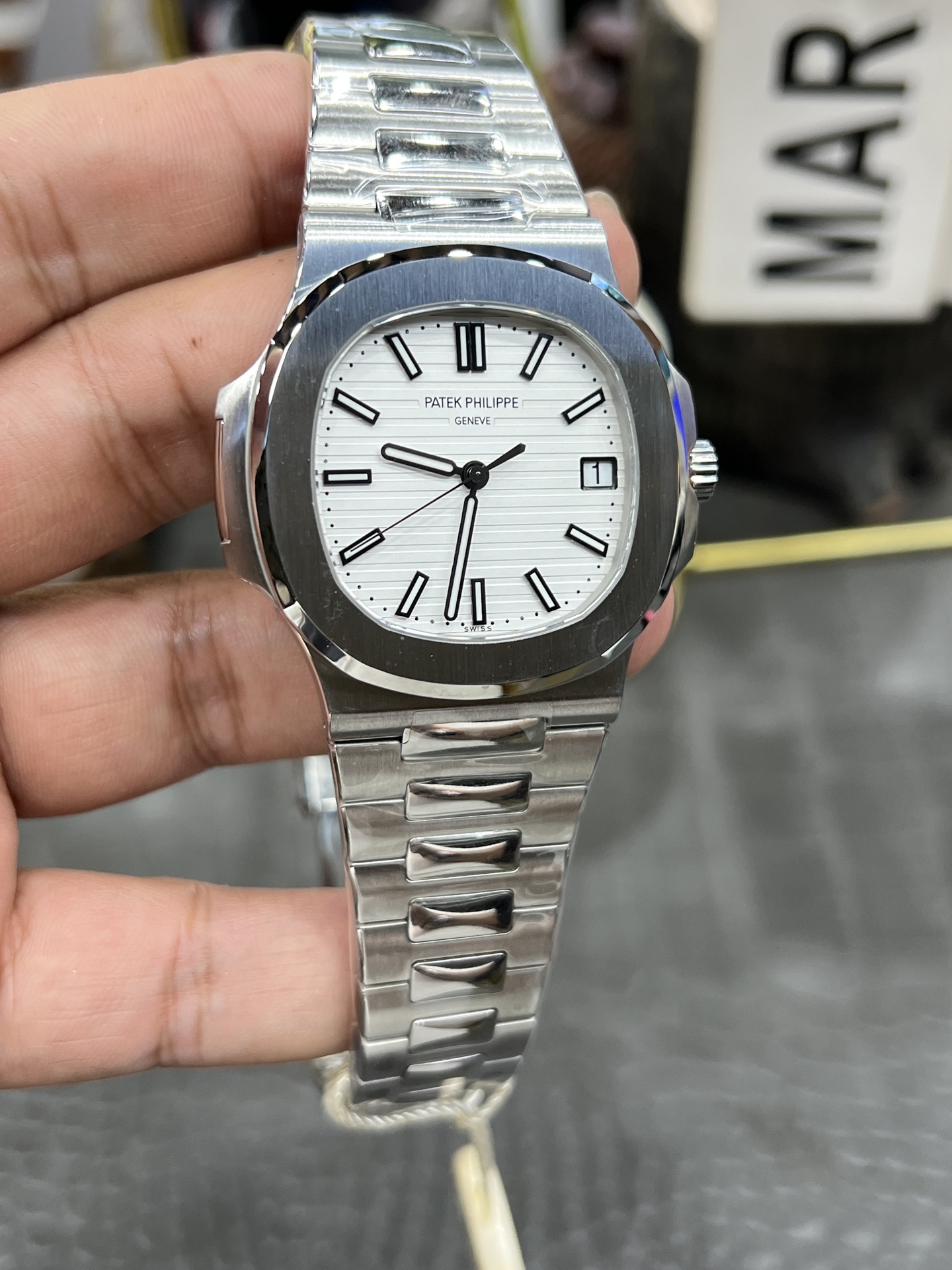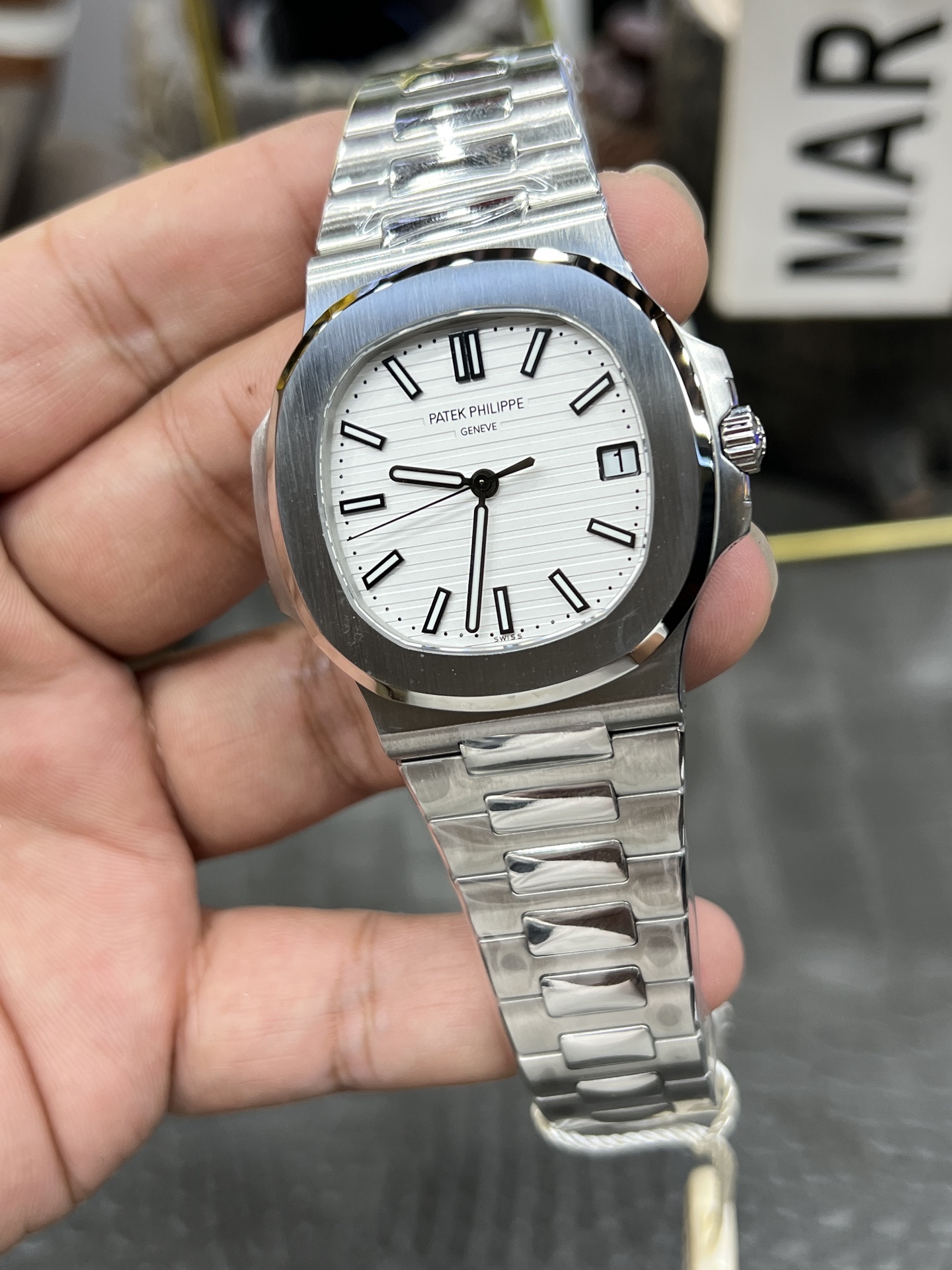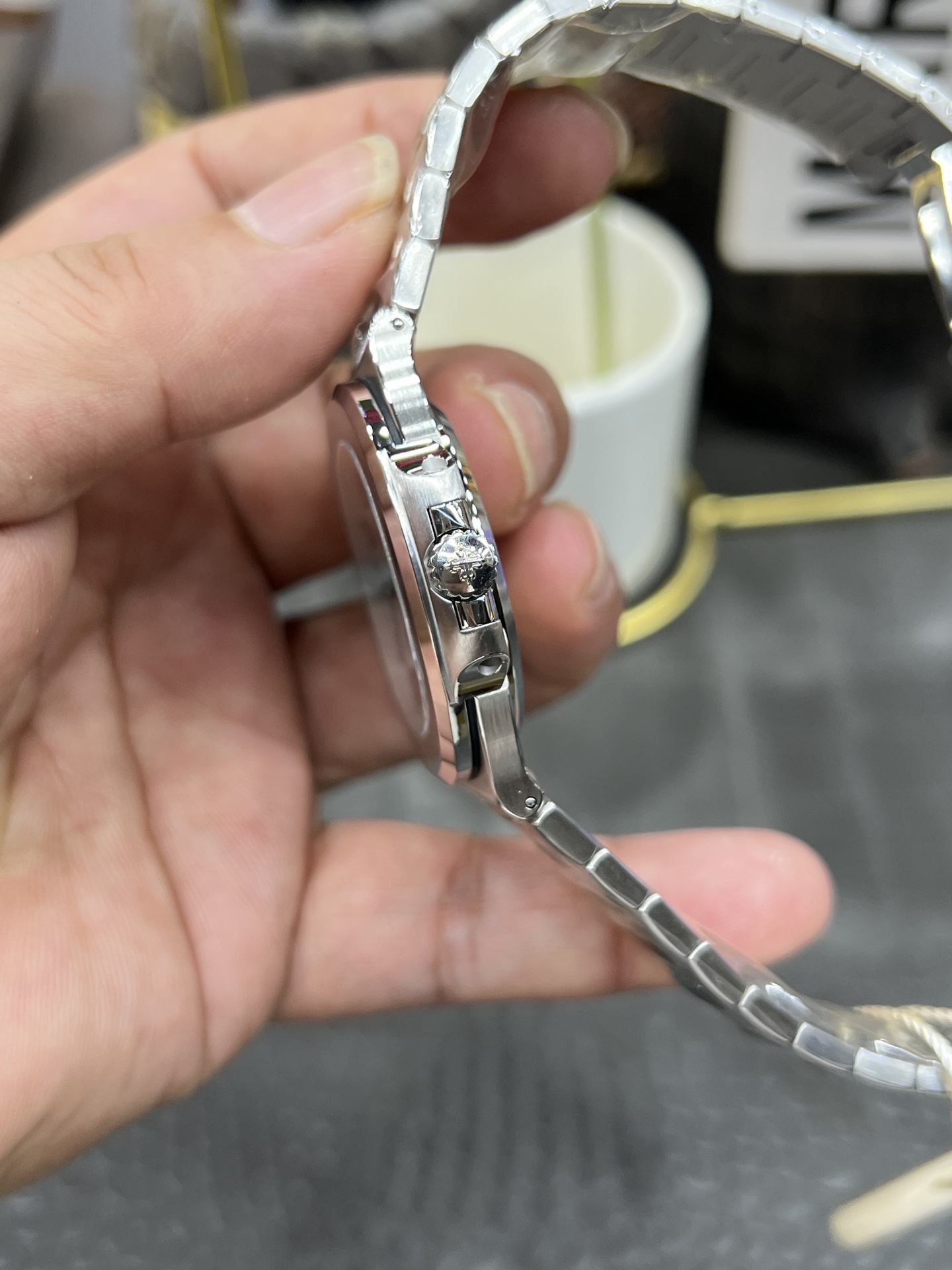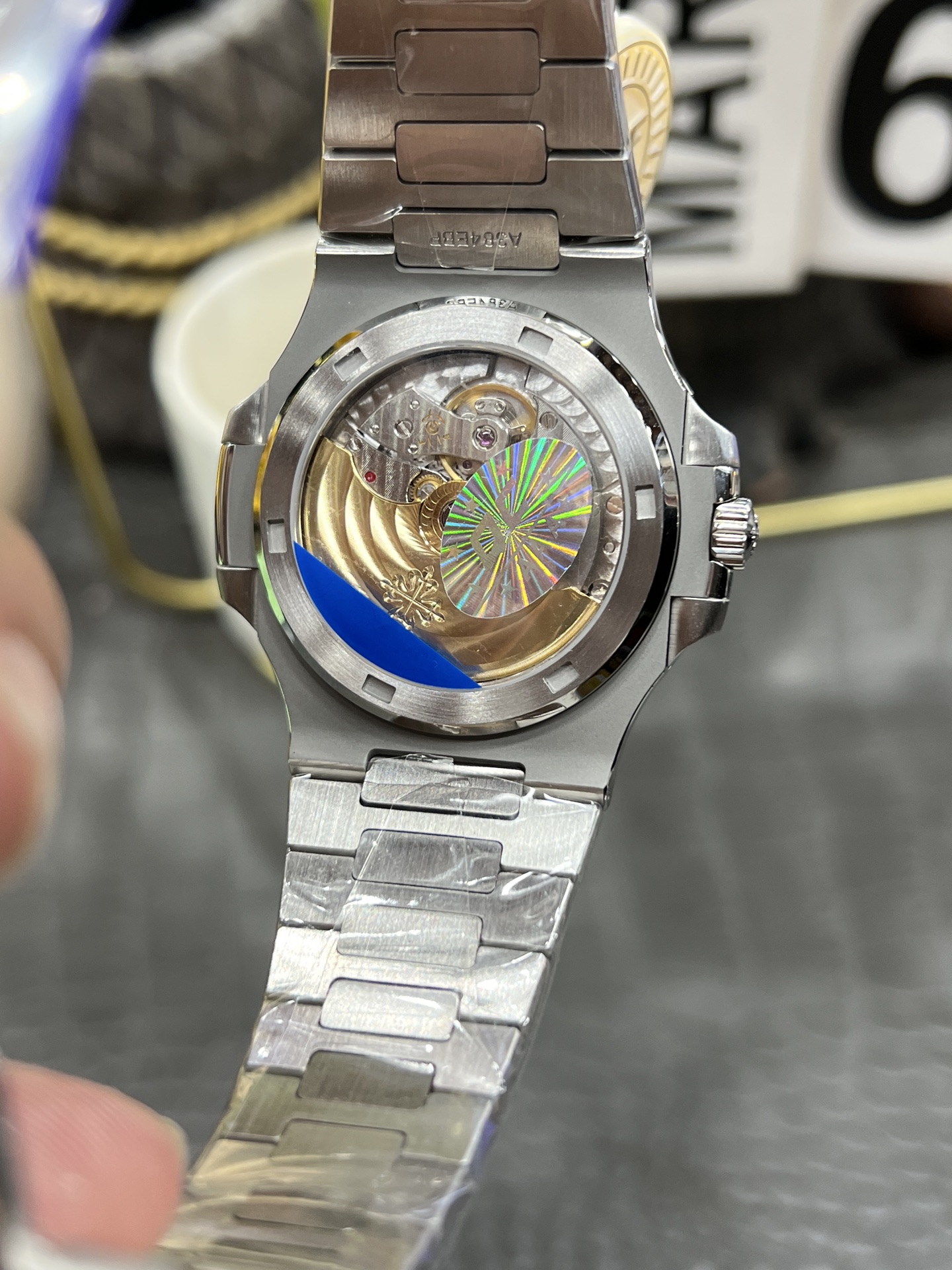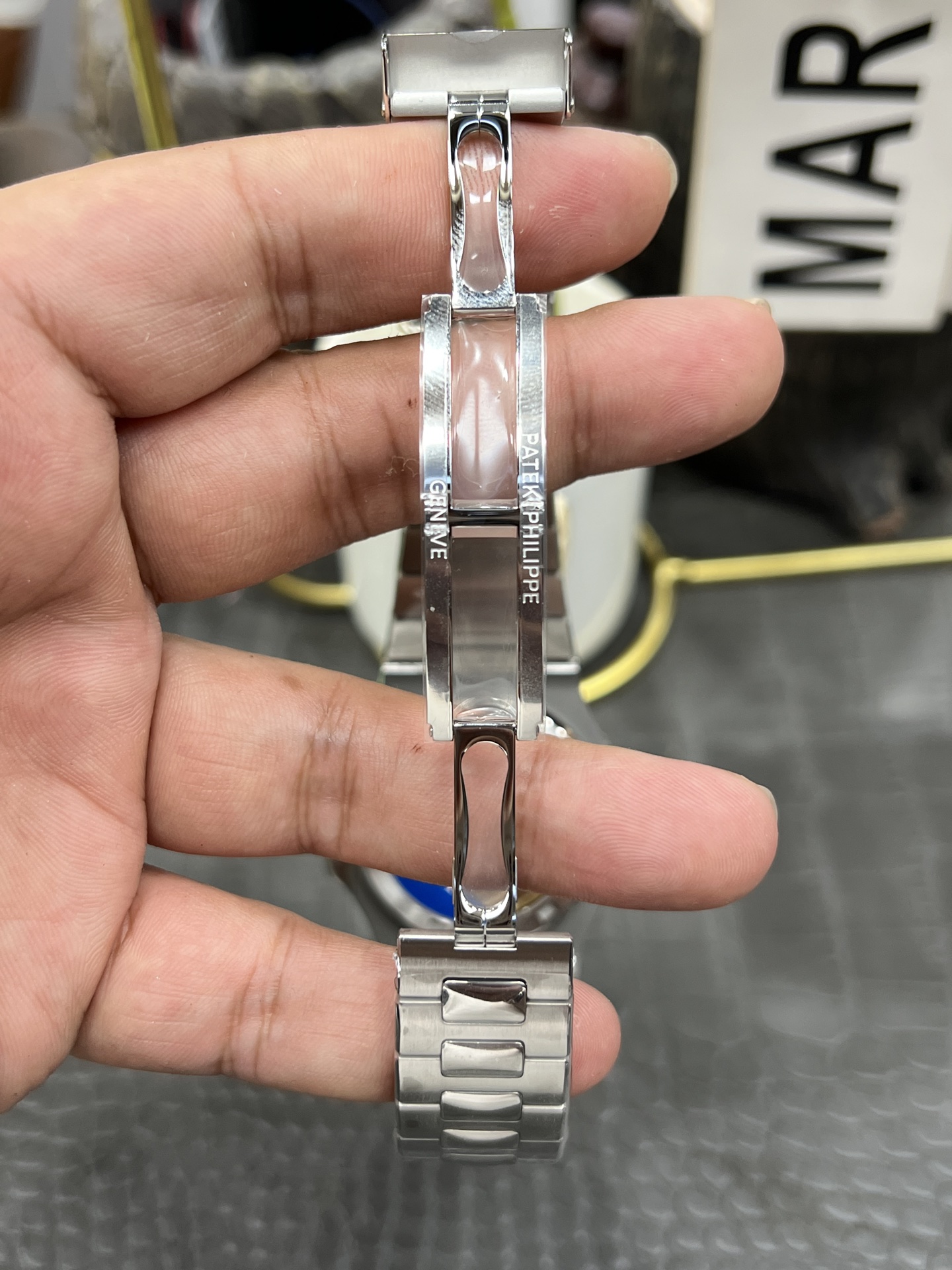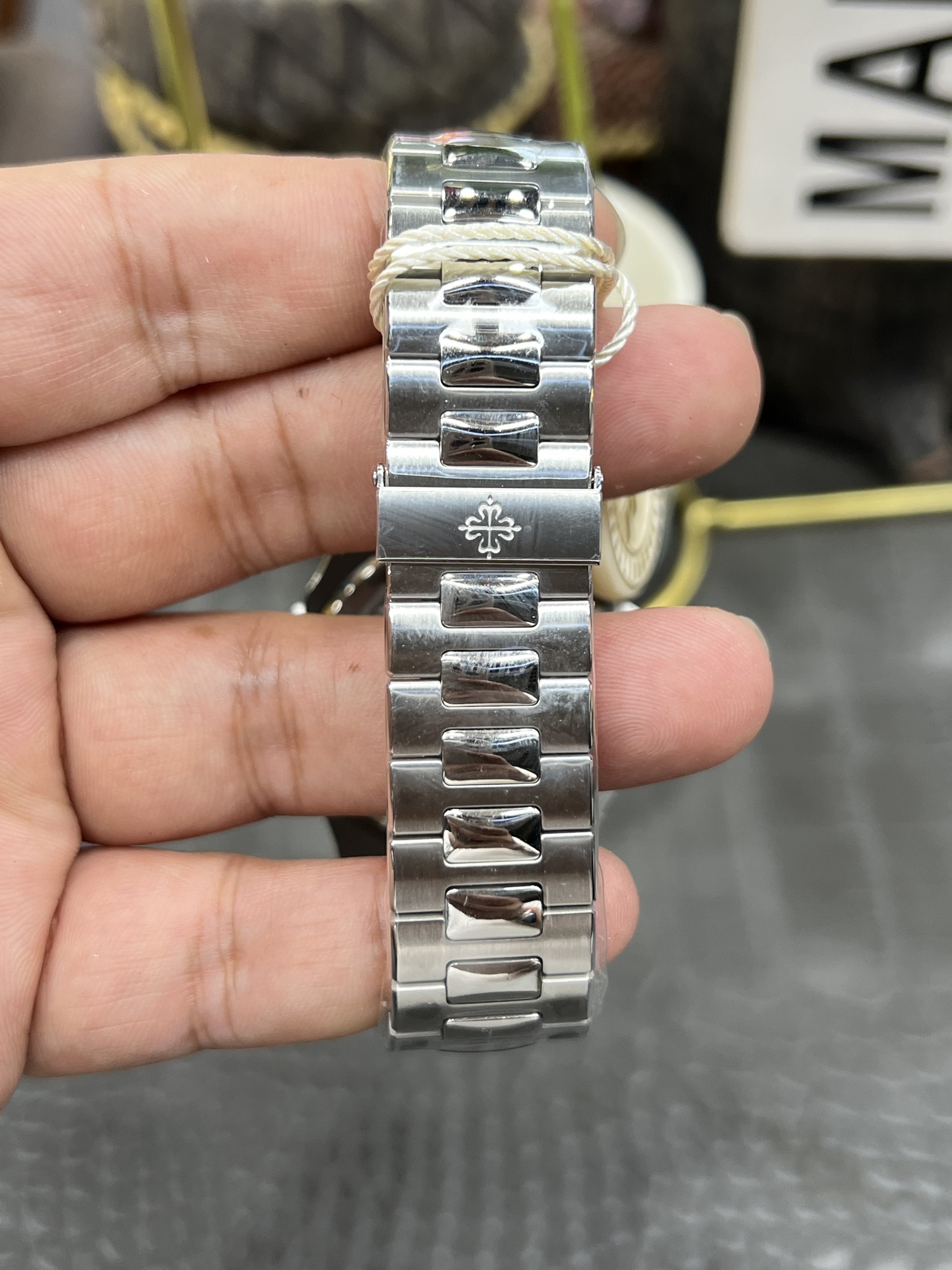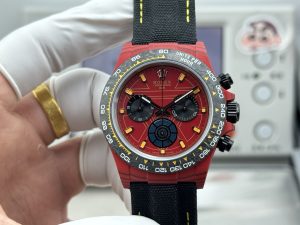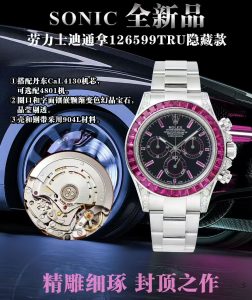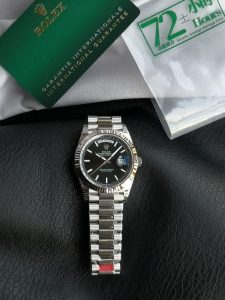In the realm of luxury watches, few names evoke as much reverence and admiration as Patek Philippe. The Nautilus 5711 series, particularly the 40mm model with its 8.3mm white dial, powered by the Caliber 324 automatic movement, stands as a testament to the fine engineering and timeless design that the brand is known for. This article seeks to delve into the intricate details and broader implications of owning such a masterpiece, while also exploring the replica watch phenomenon that shadows luxury markets.
Design and Technical Excellence
The Nautilus 5711 is celebrated for its distinctive design, which merges elegance with a sporty aesthetic. The sleek 40mm wide case is complemented by a slim profile at 8.3mm, allowing it to glide effortlessly under a shirt cuff. The white dial offers a crisp, clean look, enhanced by luminescent hands and markers that ensure readability. At the heart of this timepiece lies the Caliber 324, an automatic movement renowned for its precision and reliability. Patek Philippe’s dedication to craftsmanship is evident in the movement’s architecture, which combines traditional watchmaking techniques with modern innovations.
Ethical Considerations in Luxury and Replicas
The world of luxury watches, including the Nautilus 5711, often faces scrutiny regarding ethical production and the thriving replica watch market. On one hand, owning a genuine Patek Philippe is an affirmation of one’s appreciation for fine craftsmanship and exclusivity. On the other hand, replica watches, often mass-produced in regions with lax labor laws, present ethical dilemmas around consumer choices and manufacturing practices. The question arises: does the allure of owning a luxury watch justify the economic and ethical implications it carries?
Economic Realities and Investment Value
From an economic standpoint, the Nautilus 5711 has become an emblem of investment potential, with its market value often surpassing original retail prices due to high demand and limited availability. However, like other luxury watches, the narrative of watches as investments is complex. While some models appreciate considerably, others may not yield substantial returns. According to industry data, luxury watches can experience fluctuations similar to other luxury goods. Thus, potential buyers should weigh emotional satisfaction against economic rationality.
The Branding Power of Patek Philippe
Patek Philippe’s branding strategy has been meticulously cultivated over decades, fostering an image of prestige intertwined with heritage and exclusivity. The Nautilus 5711 exemplifies this branding success, with its design being instantly recognizable and synonymous with sophistication. Brand loyalty plays a significant role in its desirability, further fueled by strategic production limitations that maintain its scarcity and, consequently, its value.
Psychological and Personal Value
For many enthusiasts, the psychological allure of owning a Patek Philippe goes beyond mere possession. It represents a culmination of personal achievement, a tangible reward for one’s perseverance and dedication. This sentiment is often contrasted with the stigma attached to replica watches, which, despite offering aesthetic similarities, lack the emotional resonance associated with authentic craftsmanship.
Concluding Thoughts
The Patek Philippe Nautilus 5711 remains a benchmark in luxury watchmaking, celebrated for its design and mechanical superiority. While the replica watch market poses challenges to the luxury industry, the Nautilus’ enduring appeal underscores the importance of authenticity and tradition. As consumers navigate the complex landscape of luxury purchases, evaluating economic, ethical, and psychological factors can guide informed decision-making, ensuring that these timepieces are cherished for their true worth.
